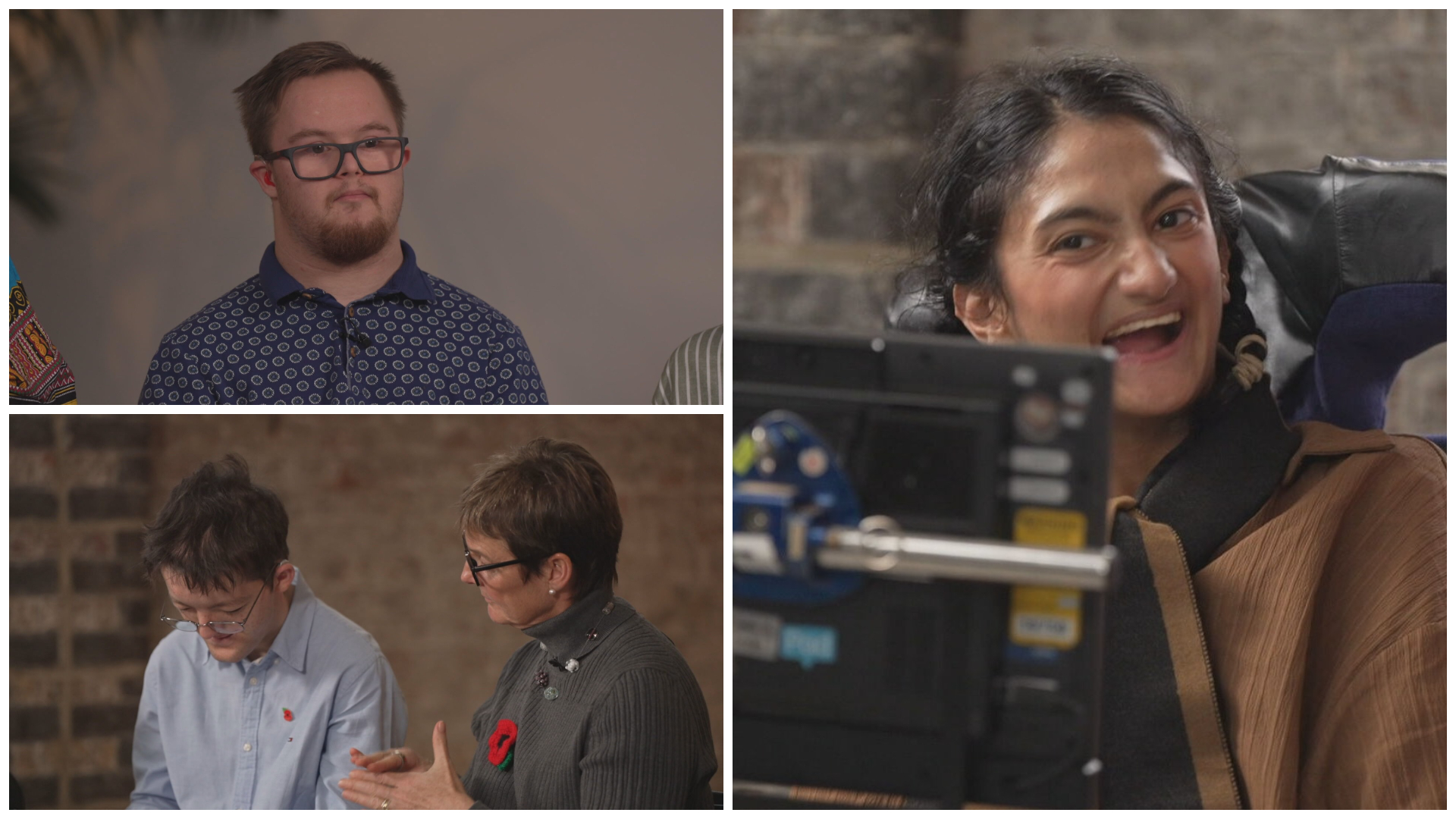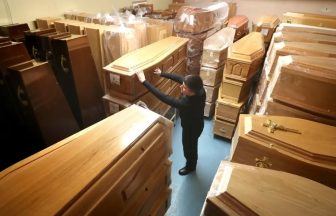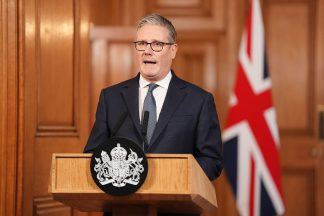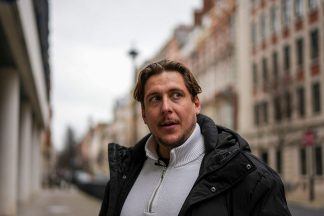Investigations Editor Daniel Hewitt spoke with seven people with learning disabilities about work, life and their worries for the future.
Words by Investigations Producer Isabel Alderson-Blench
ITV News has exposed alleged neglect and abuse of people with learning disabilities in care homes and across the NHS.
People with a learning disability are often ignored, dismissed, undervalued and underestimated.
But what is day-to-day life like for people with a learning disability today, and what should the government be doing to improve their lives?
Seven individuals with a learning disability, from across the country, spoke to ITV News about work, life, their biggest challenges and their worries for the future.
People with learning disabilities face stark healthcare inequalities. In October, ITV News revealed that the NHS had missed its targets for rolling out specialist training for medical staff in treating people with learning disabilities and autism.
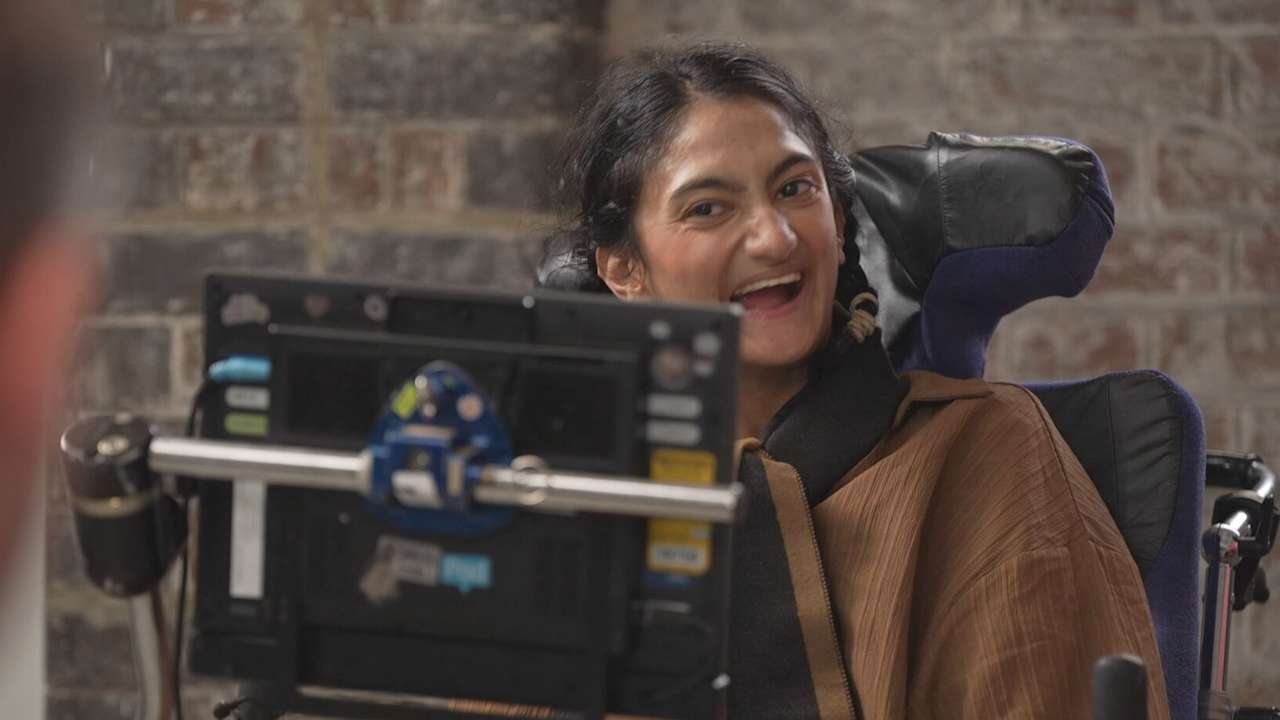
29-year-old Rahima has cerebral palsy and a learning disability, uses a wheelchair to move and a computer to communicate.
She knows better than most about the challenges of receiving the healthcare she needs. Rahima told us she finds the constant need to demand respect from medical professionals ‘draining’.
“One time a doctor was speaking to my sister and I was awake. He told her that she should contemplate letting me go because of my quality of life,” she told us.
“I was right there. It felt like they had just given up on me and I was invisible.
“The fact he didn’t respect me enough to speak to me or involve me, felt like I was not a person, but a thing.”
Adrian, who is 57 and from London, is also a wheelchair user and has learning disabilities. He says Rahima’s experience is not unique.
“You’ll find that’s not just happening in hospitals. The stigma against people who have learning disabilities, you’ll find it happening everywhere,” he says.
“We can talk about this all day, really,” Adrian adds, to a smattering of knowing laughter across the room.
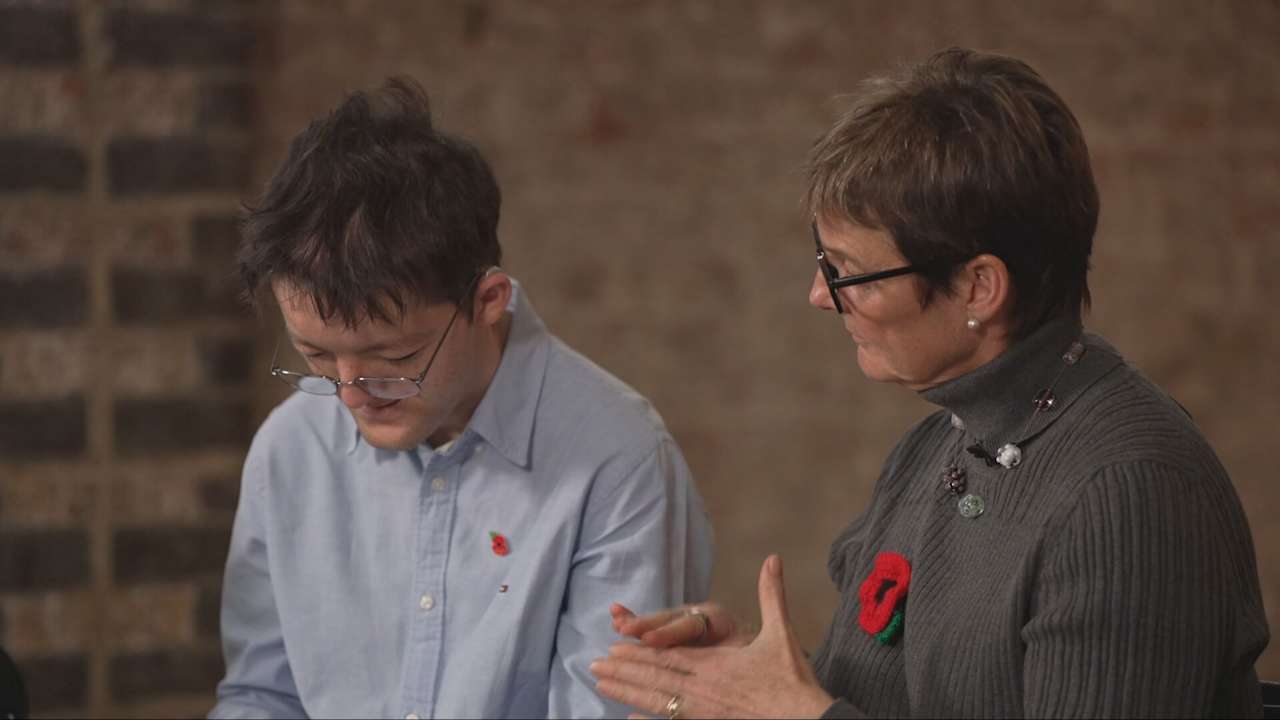
Gregory, who is non-verbal, has two jobs and is learning to drive. He says he is often underestimated because of his disability.
He communicates using sign language.
“I have been bullied, teased and made fun of… People see me and think I can’t do something, but I am very capable and I will get my words across if you give me time.”
Heidi Carter from Coventry has Down syndrome, and says that people often make assumptions about her personality based on her disability.
“A popular myth is that people with Down syndrome are always happy and lively, and we are not,” she says.
“You should see me when Liverpool lose, or when things change, because I don’t like change.”
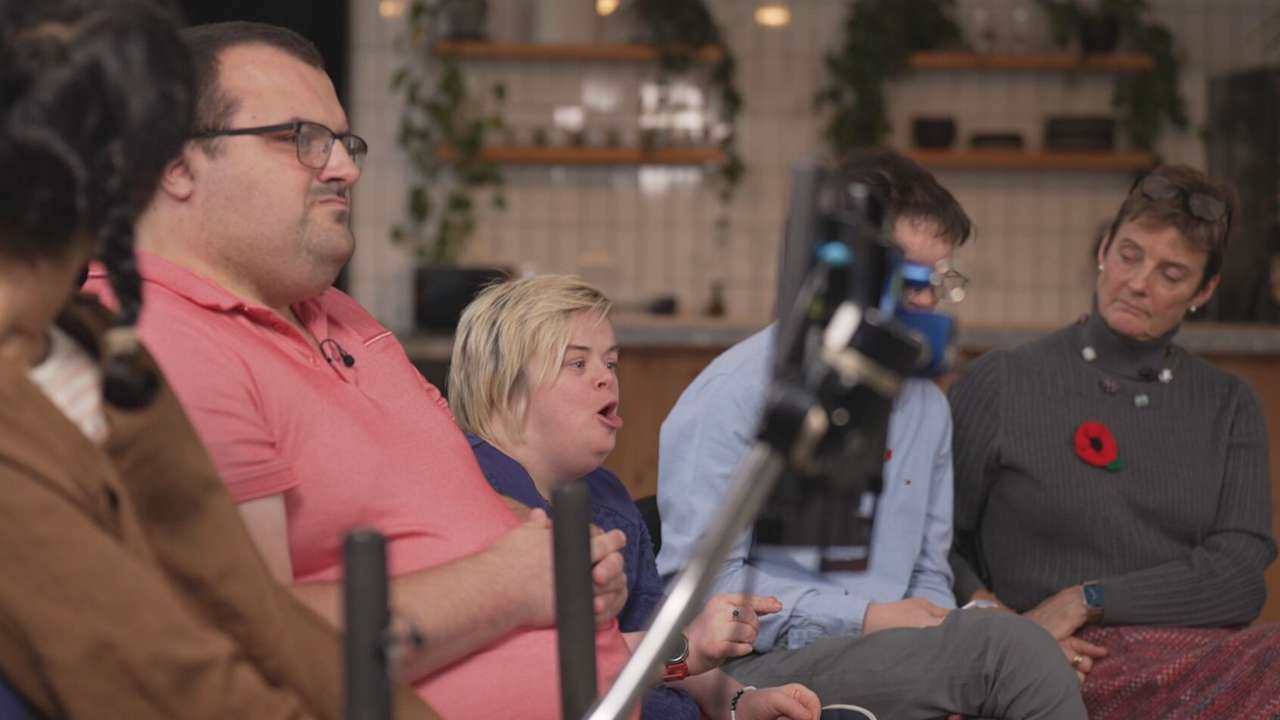
Heidi has campaigned for a change in the law, which currently allows for the abortion of an unborn baby with Down syndrome up until full term.
“It makes me feel that I’m better off dead,” Heidi says.
“I know I’m not, but that’s how it makes me feel.”
“The doctor did not understand me”
On average, people with a learning disability die 20 years earlier than the general population. This number has barely improved over the past 20 years, despite a government-led, NHS-run project which reviews deaths of people with a learning disability and aims to reduce health inequalities.
George knows too well how it feels to be misunderstood by doctors. In 2021, he became unwell and his mother, Carole, immediately understood it was serious and took him to the hospital.
“I was really sick, but the doctor said I was not. I was sad because the doctor did not understand me.
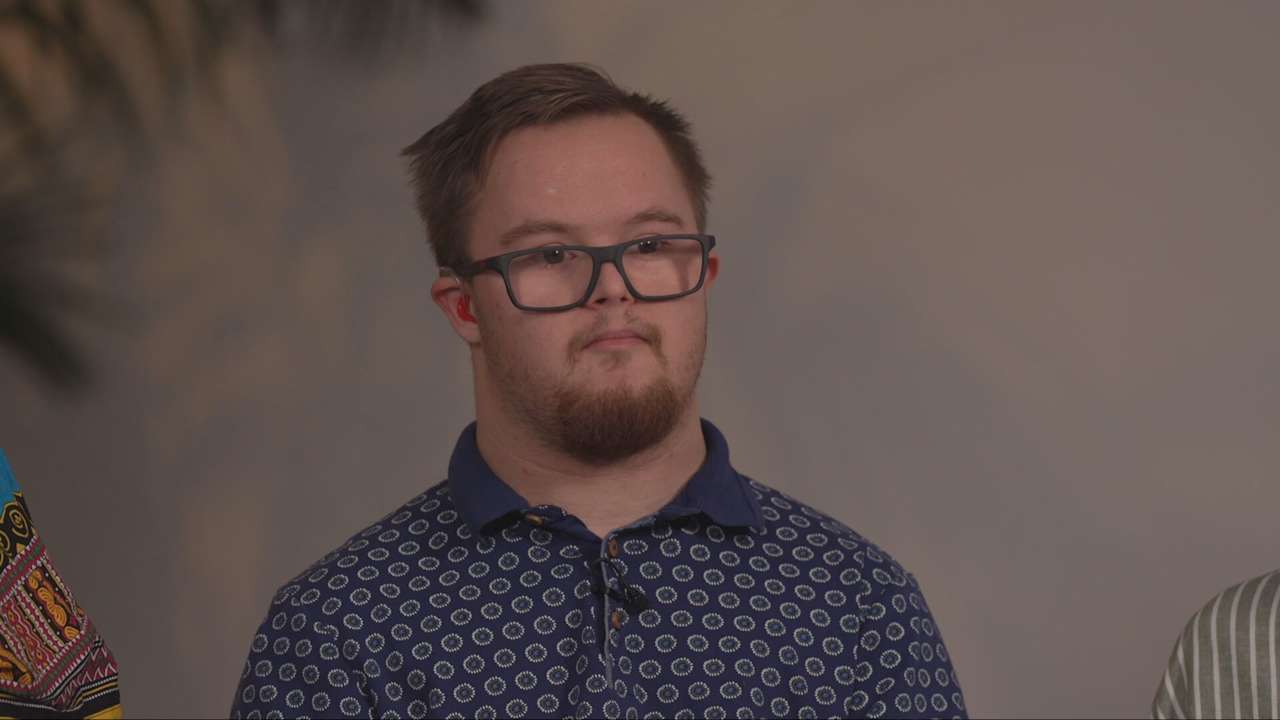
“It took a really long time for the doctors to understand me, and then I had to have an operation to take my appendix out,” George said.
Carole tells us that while George was unable to fully explain the pain he was feeling, she knew that something was very wrong. She insisted he was admitted to the ward, and by the time George’s operation took place, his appendix had burst.
“We’ll lose everything… what funding is there going to be?”
The majority of social care for adults with learning disabilities is funded by local authorities. Councils in England are spending, on average, more than a third of their budgets on adult social care, with more than £22 billion expected to be spent in 2024/25.
Matt Lester works part-time and receives 18 hours of support a week, funded by his local council. He has recently been notified that he is at risk of his support hours being cut.
“The more you do, the less support you get,” he tells us.
“My deepest concern is for the future. What funding is there going to be? What support is there going to be?
“Whatever happens in the budget, we are going to face some big challenges and if we don’t raise concerns that we’re raising today, we’ll lose bus passes, we’ll lose blue badges.
“We’ll lose everything,” Matt says.
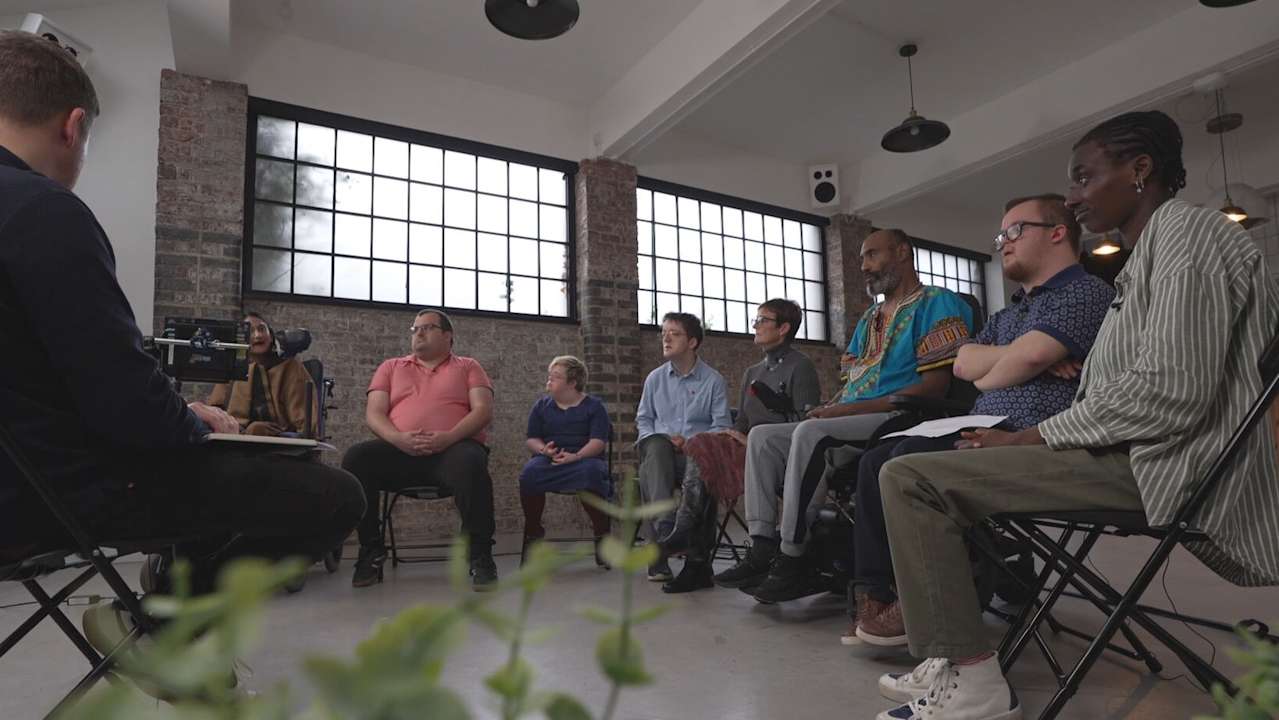
ITV News invited Care Minister Stephen Kinnock to join us in meeting this group, sharing their personal experiences and asking for change. He declined.
If Adrian could say one thing to the care minister, what would it be?
“We need reasonable adjustments. What comes out of their mouth when it comes to providing services? Oh, we ain’t got no money. Hold, on wait a minute….”
Aisha, from London, had a baby last year. She says she was able to have a positive experience becoming a mum because of the specialist learning disability team at her hospital. But people with learning disabilities are still facing barriers.
“Before COVID, we used to have face-to-face appointments. What’s happened to all of that?”
“Because I’ve got a learning disability, it takes me a little bit longer to cognate things,” Aisha says.
“On the money thing,” Heidi adds, “I think it’s because they don’t really care about us. I know that they’ve got a lot of money, I think it’s because they love money more than us,” she says.
Rahima added, “Disabled people are not getting the basic things to live life with dignity. People often think that we lack a quality of life or even that is impossible to provide us with one.
“Everyone is entitled to life and its beauty.
“It is the government’s responsibility and moral duty to honour our basic rights.”
Jon Sparkes, chief executive of learning disability charity Mencap, told ITV News, “Listening to people with a learning disability is the vital first step to creating a fairer society for them, and for all.
“We all want the same things – to be heard by our doctor and given access to good quality physical and mental healthcare; to be offered a foot on the career ladder.
“People with a learning disability face barriers to these achievable goals every single day… conversations like these are crucial if we want to break down barriers and make real change.”
Follow STV News on WhatsApp
Scan the QR code on your mobile device for all the latest news from around the country


